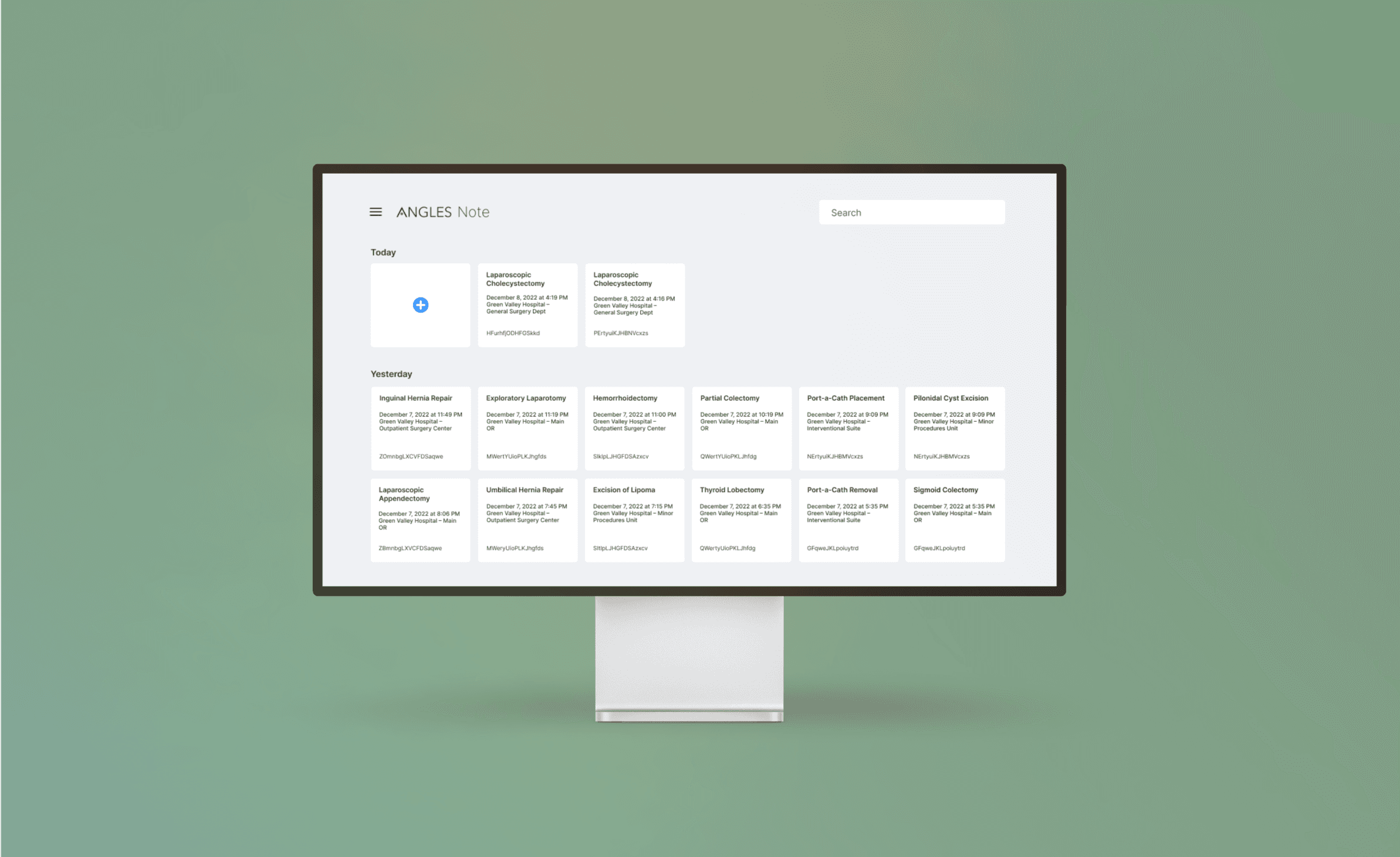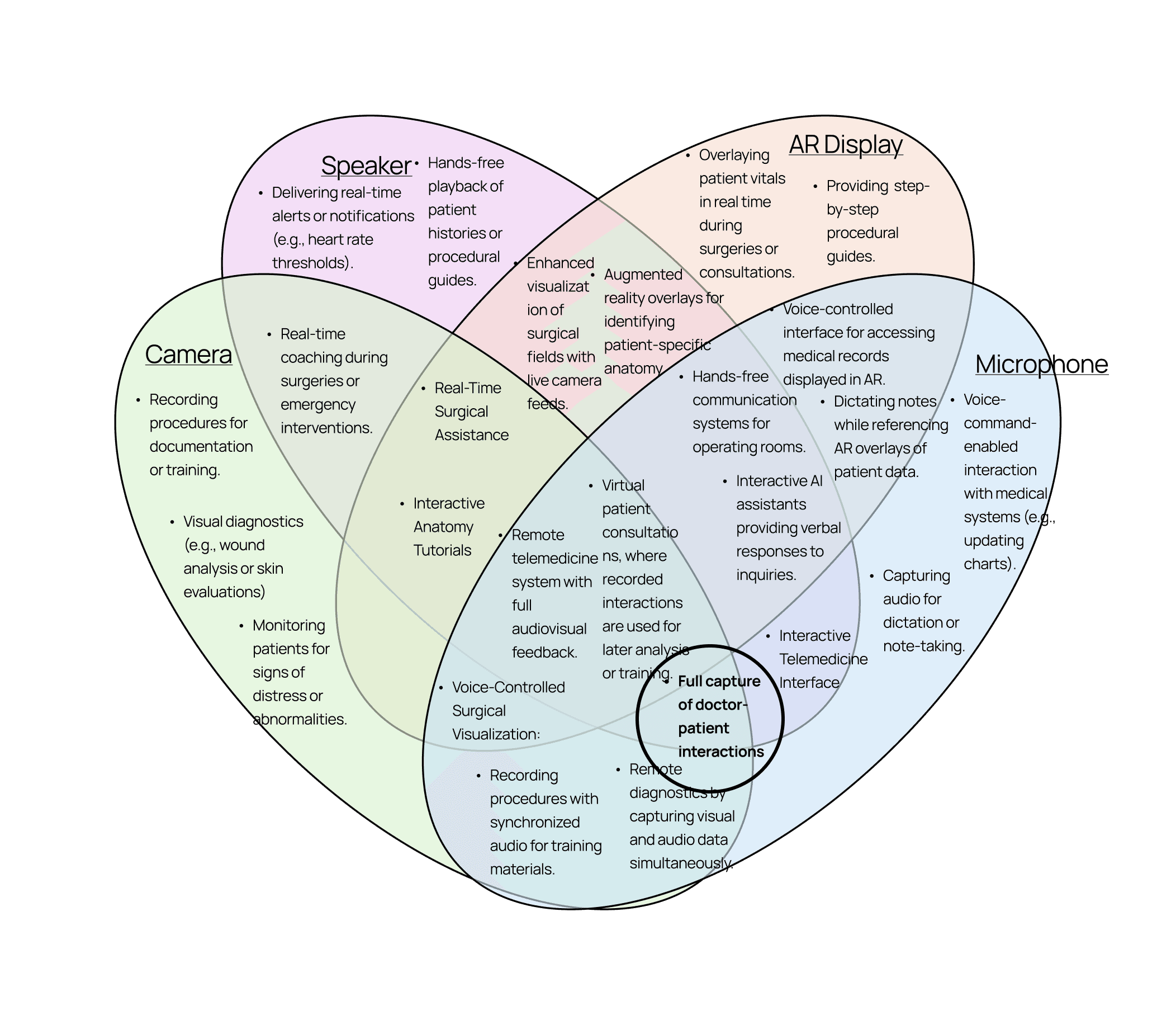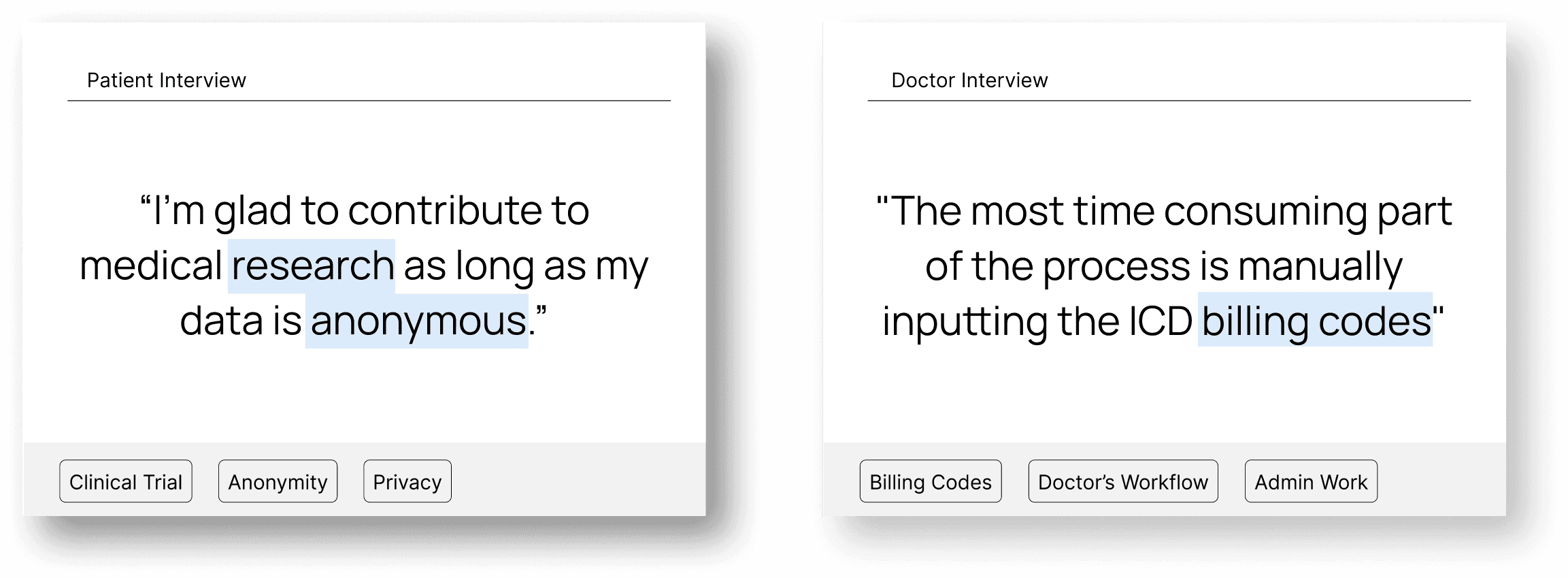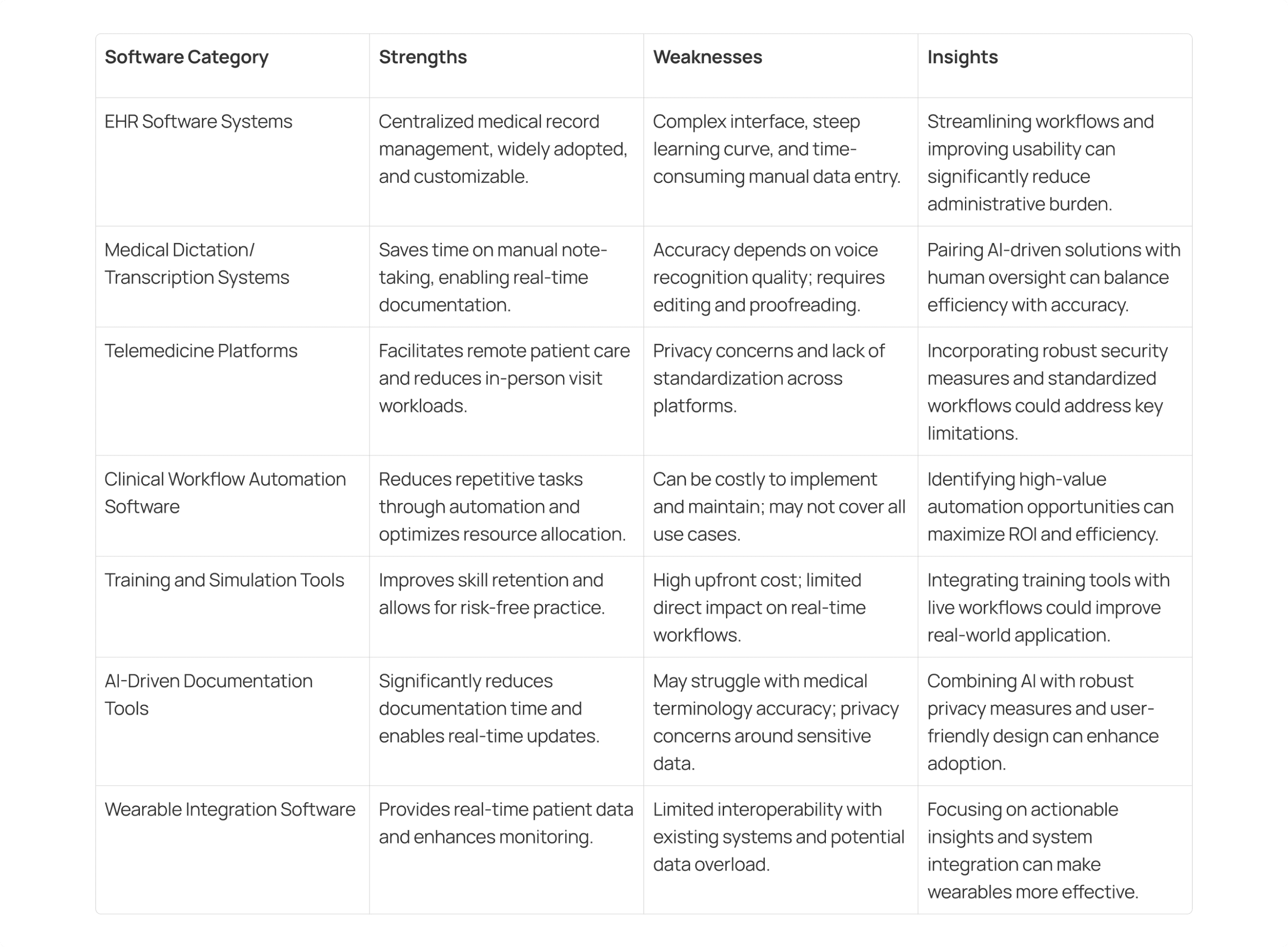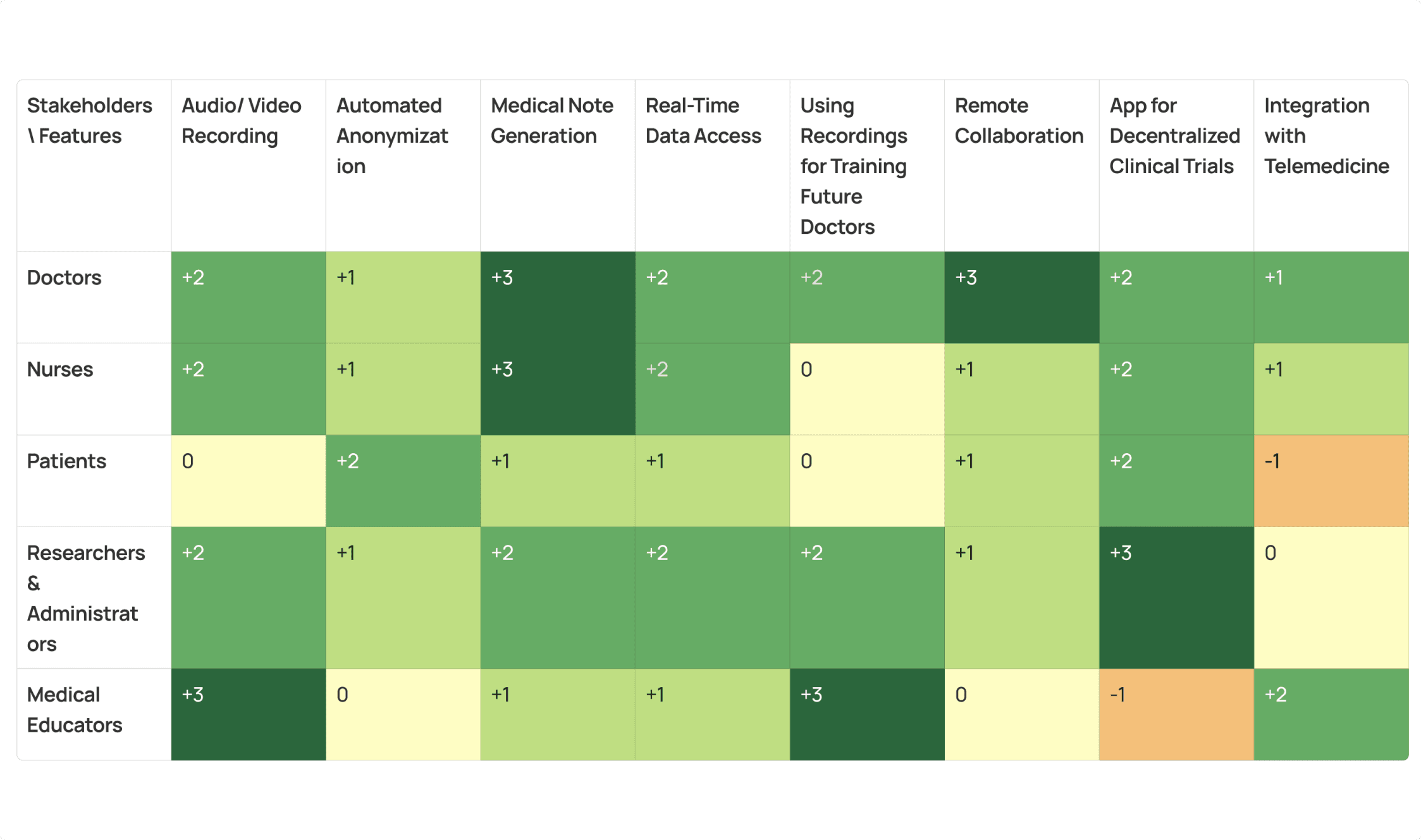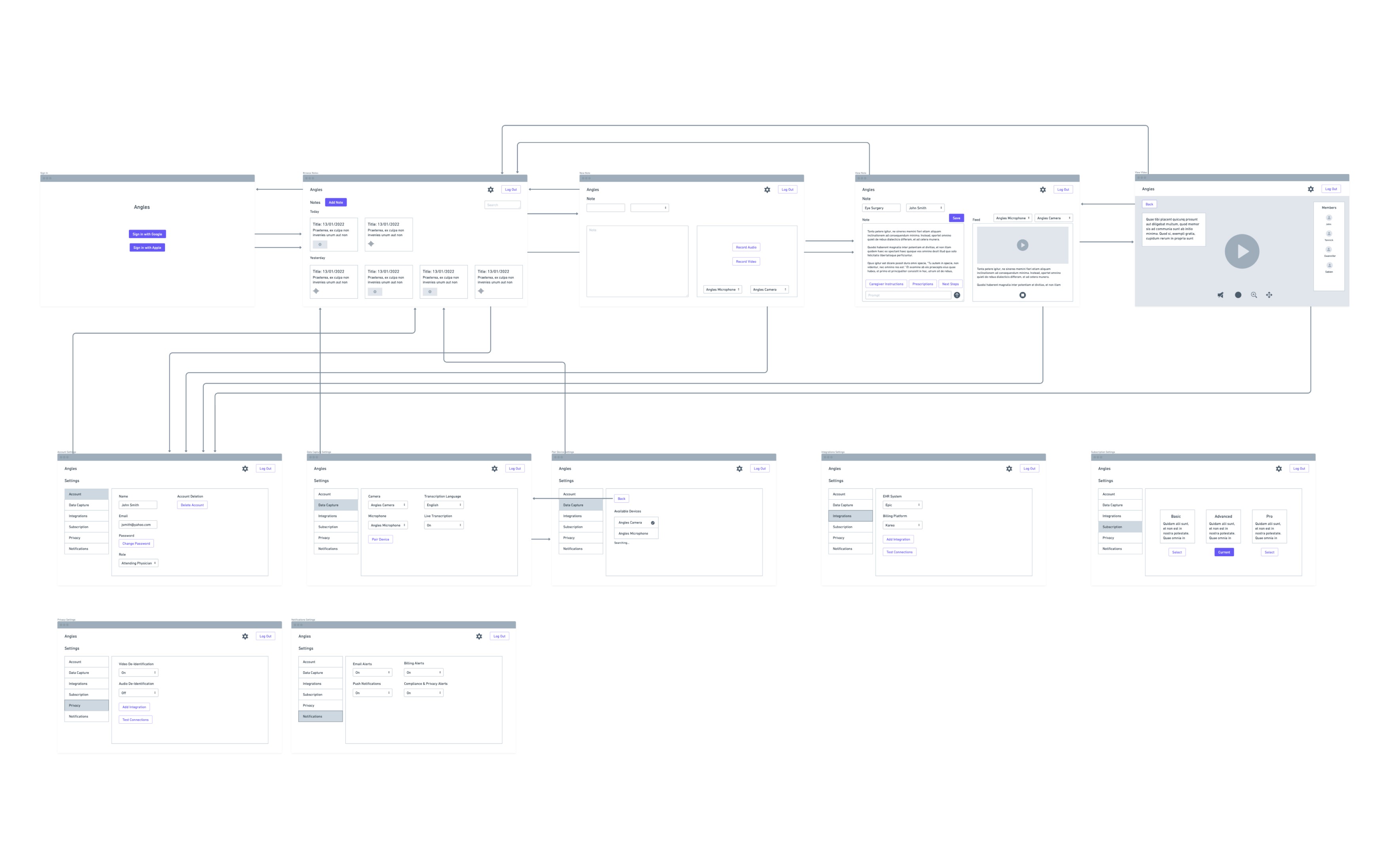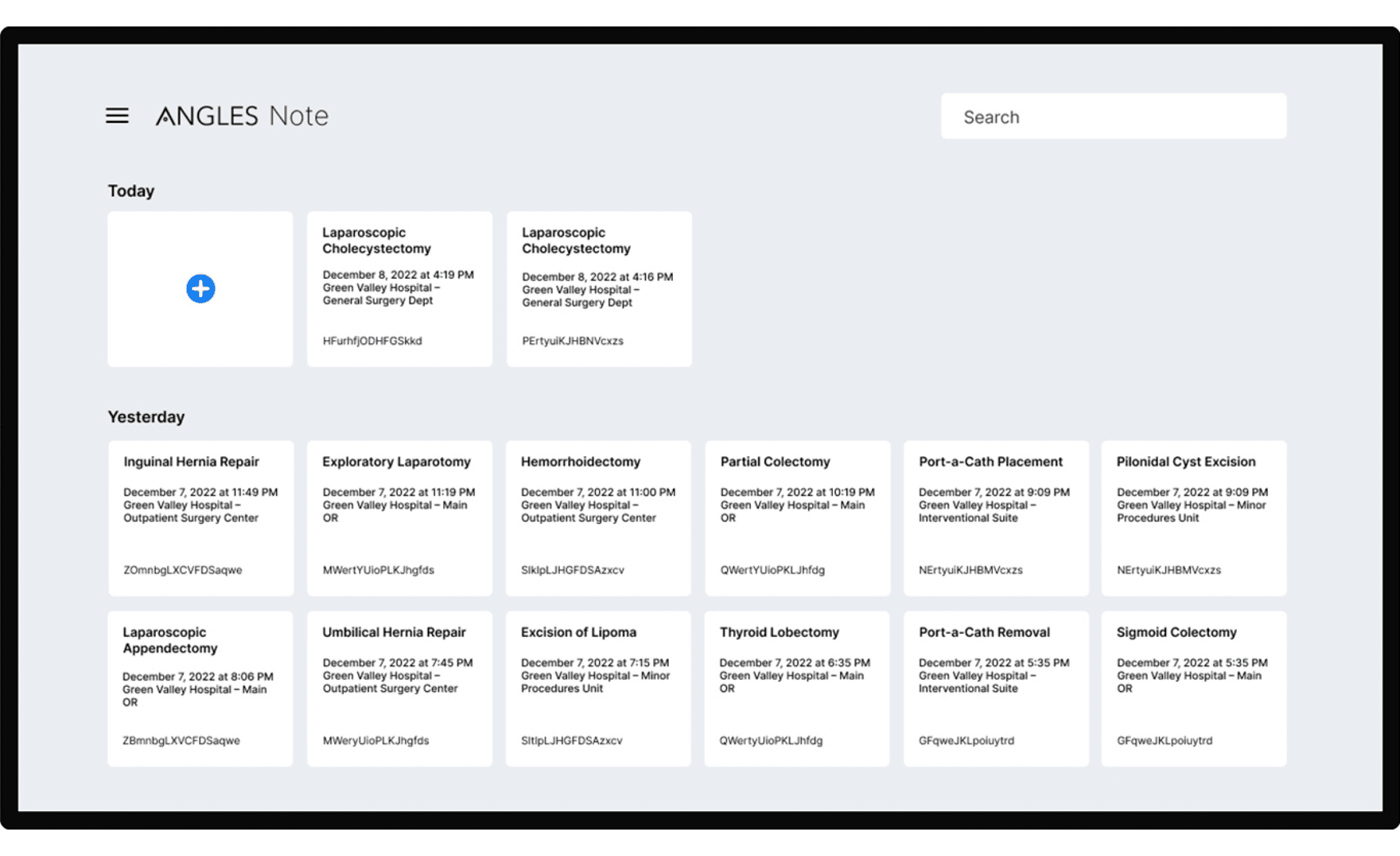Hybridwerx
Product design for Angles: A platform to automate medical note-taking.
Role
Product Design Lead
Industry
HealthTech
Duration
2 Years
Problem
Doctors and nurses are overwhelmed by administrative tasks, and typically spend half of their time on administrative work including note-taking. This challenge impacts healthcare quality and contributes to burnout among medical professionals.
Design Process
Feasibility Study
I conducted a feasibility study to explore Hybridwerx's existing IP around an augmented reality device with a camera, microphone, and no display, to understand how it could be used to streamline medical workflows.
I used a Venn diagram to understand how the combination of a camera, speaker, microphone, and AR display can enable various medical use cases.
Integrating a microphone, speaker, and camera allows for comprehensive capture of doctor-patient interactions, presenting the most promising use case within our hardware constraints.
Research
What are the workflows of doctors and nurses like? How do they manage their time? What tools do they use to assist in their daily operations?
To ensure our solution met real-world needs, I conducted interviews with doctors, nurses, patients, and medical staff to gain insights into how this technology could integrate into daily medical practices.
Insights
Based on these conversations, I formulated a set of relevant insights:
Note-Taking Process: Medical professionals spend a disproportionate amount of time on note-taking, detracting from patient interaction.
Training Opportunities: There is a significant need for improved training tools in medicine, which our hardware could address.
Anonymity Importance: Capturing data without unique identifiers is crucial for privacy.
Optimal Contexts: The technology is particularly useful in fields like clinical trials, where precise documentation of procedures and patient interactions is already commonplace.
Personas
I created personas to guide my design process based on my research.
Design Benchmarking
I conducted a thorough analysis of existing medical documentation tools to understand their strengths and limitations. This benchmarking provided insights into how other products approach user experience, hardware integration, and privacy considerations. Each solution has its own strengths and limitations.
Design Goals
Based on my research, I settled on the following goals to guide the design of the Hybridwerx Angles platform:
Social Acceptability: Ensure the product is socially acceptable in medical contexts, addressing privacy concerns and patient comfort.
Focused Use Case: Start with a well-defined use case in clinical trials and plan for expansion based on feedback and success metrics.
Seamless Integration: Effectively integrate the hardware with our digital platform to provide a smooth and intuitive user experience.
Stakeholder Value: Design a solution that is valuable to all relevant stakeholders, including doctors, nurses, and hospital staff.
Reduced Administrative Burden: Focus on minimizing the administrative workload for medical professionals through efficient documentation and data management.
Balancing Stakeholders
I created a Stakeholder Impact Grid to understand how the potential features for Angles would affect the experience of each stakeholder who would be impacted. Each feature was scored on a scale of -3 to +3, with positive values indicating benefits and negative values representing potential drawbacks.
Decision Matrix
I developed a feature prioritization matrix to evaluate how each proposed feature aligns with our budget and technical constraints. During a meeting with engineering, I gained deeper insight into the opportunities and challenges of integrating AI into our platform. This matrix helped us make informed decisions about the feasibility and scope of each feature.
User Flows
I designed user flows around each of the core features of the Angles platform, visualizing how users would accomplish essential tasks like recording a medical interaction, and editing a medical note.
Wireframes
Final Designs
Using the Angles digital platform and AR device, doctors and nurses can easily record patient interactions and have them properly formatted into medical notes and training footage for clinical trial research.
Results
Angles was launched as a web and mobile app, receiving approval in the Google Play store in 2022. To validate the MVP, the team collaborated with industry leaders and medical professionals from University of Buffalo and University of Rochester, to test the platform in real-world environments. The MVP became a valuable tool for engaging investors and stakeholders, showcasing the platform’s capabilities and laying the foundation for a focus on the clinical trial space.
